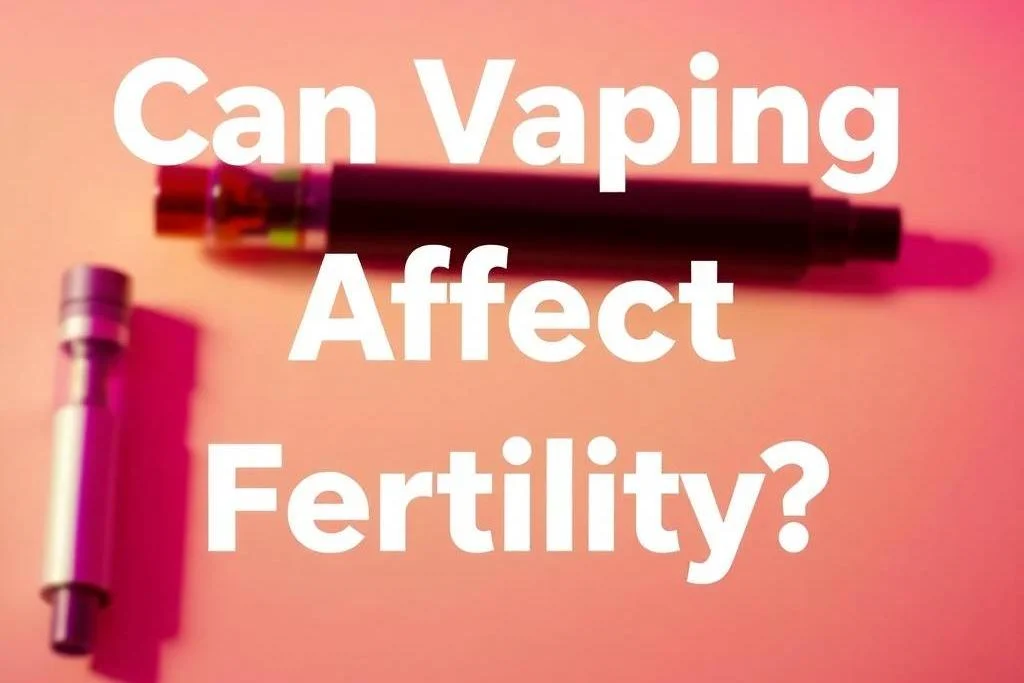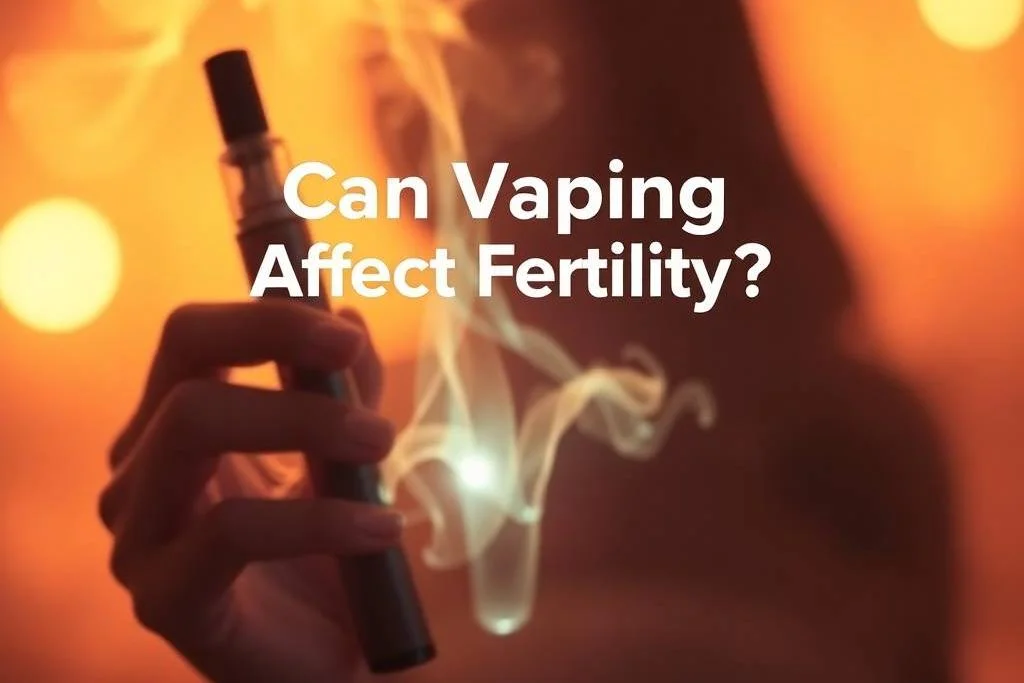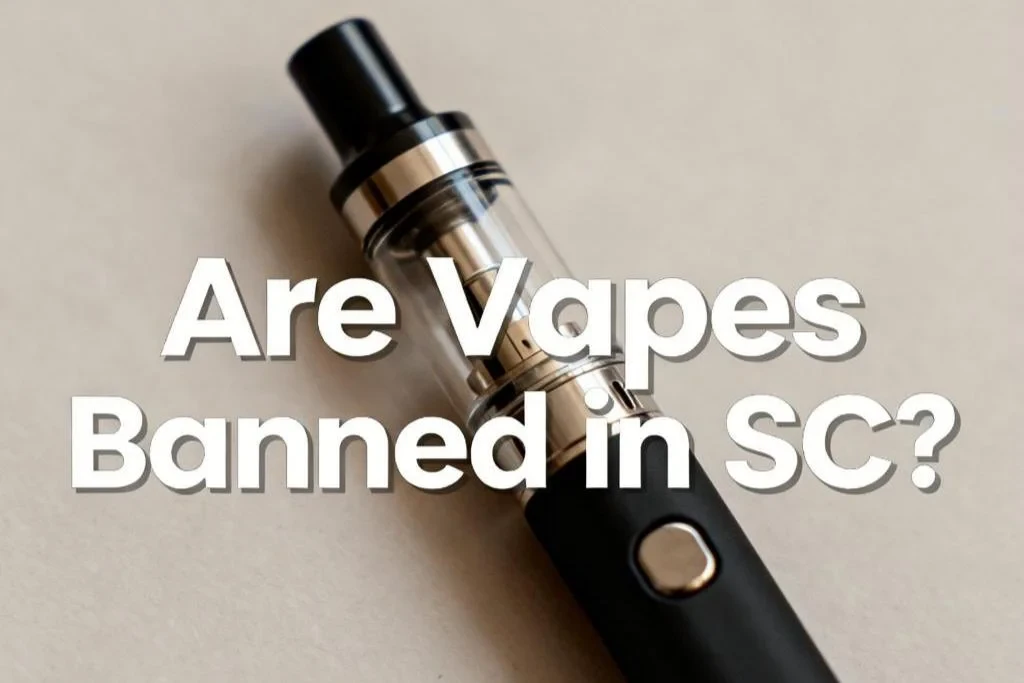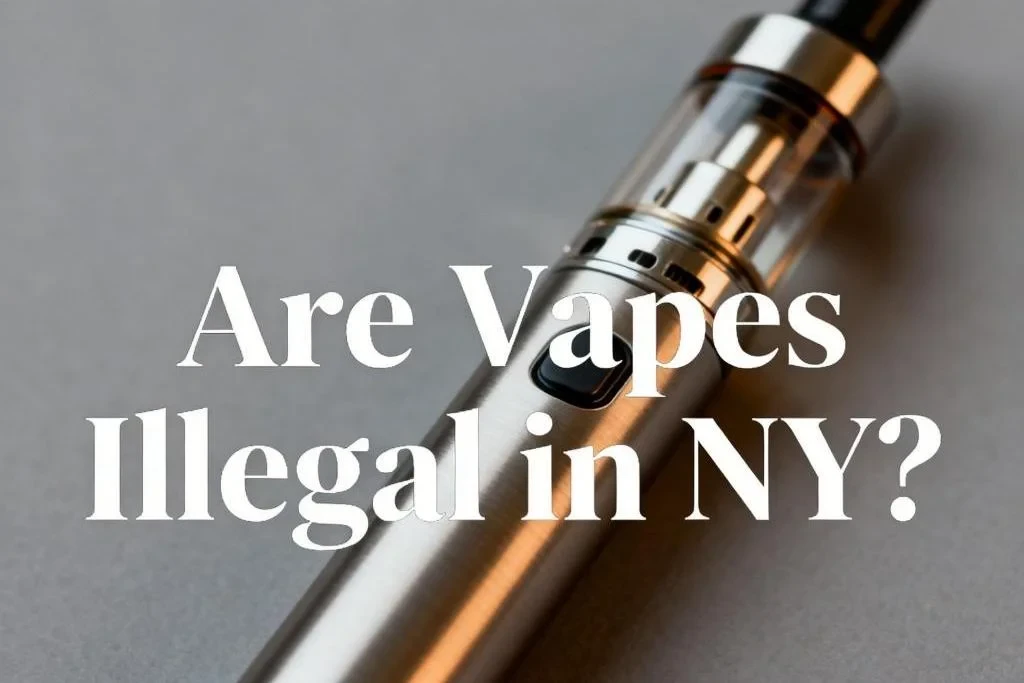CAN VAPING AFFECT FERTILITY?
As vaping continues to grow in popularity, especially among younger adults and smokers looking for alternatives, health-related concerns are also on the rise. One pressing question gaining attention is: can vaping affect fertility? This guide explores the current scientific understanding of vaping and its potential effects on reproductive health in both men and women. Whether you're planning to start a family or simply prioritizing your health, it's essential to understand how vaping might play a role in fertility outcomes.
Does Vaping Affect Fertility in Men?
Emerging studies suggest that vaping may negatively influence male fertility in several ways:
1. Reduced Sperm Quality
Some animal studies and early human data indicate that exposure to e-cigarette vapor may reduce sperm count, motility (movement), and overall quality. These changes can impair the ability to conceive.
2. Oxidative Stress and DNA Damage
The heating elements in vapes can release reactive oxygen species (ROS) and other chemicals, contributing to oxidative stress. This environment can damage sperm DNA, leading to lower chances of successful fertilization or increasing the risk of genetic abnormalities.
3. Nicotine’s Role
Even though e-cigarettes contain fewer toxins than cigarettes, most still deliver nicotine—a known vasoconstrictor that can affect blood flow to reproductive organs. Chronic nicotine use may reduce testosterone levels and impair sexual performance.

How Vaping May Impact Female Fertility
Women are not immune to the potential reproductive effects of vaping:
1. Hormonal Disruptions
Nicotine and other e-liquid chemicals may interfere with estrogen production and the menstrual cycle. Disruptions in ovulation can delay or prevent pregnancy.
2. Impact on Egg Quality
Preliminary research suggests vaping could affect the quality and viability of eggs, potentially reducing a woman’s fertility window and success with conception.
3. Increased Risk During Pregnancy
While not directly tied to conception, vaping during early pregnancy has been linked to complications such as miscarriage, preterm labor, and fetal development issues. These risks underscore the importance of quitting before trying to conceive.
What the Research Says
Although vaping is often marketed as a safer alternative to smoking, the long-term effects on fertility are not fully understood. However, several animal studies and small human studies have raised red flags about its safety in the context of reproduction.
Notably:
- A 2019 study in the Journal of Endocrine Society found that vaping in mice led to smaller litter sizes and reduced embryo implantation.
- Another study published in Fertility and Sterility highlighted potential DNA damage in sperm exposed to e-cigarette vapor.
These findings point to the need for more comprehensive human research, but they also serve as a cautionary signal for individuals trying to conceive.

Should You Stop Vaping If You're Trying to Conceive?
While definitive human studies are ongoing, health experts generally advise caution. If you or your partner are planning to have children, quitting vaping may help improve your fertility potential and lead to better outcomes during pregnancy.
Consider these steps:
- Talk to a healthcare provider about nicotine cessation programs tailored for people trying to conceive.
- Switch to non-nicotine alternatives if quitting cold turkey isn’t feasible.
- Monitor reproductive health more closely if vaping has been a long-term habit.
Conclusion
Can vaping affect fertility? The growing body of research suggests that it might—through hormonal imbalances, impaired sperm and egg quality, and increased oxidative stress. While more human studies are needed, the precautionary principle applies: if fertility is a priority, it’s wise to quit vaping or seek professional help to do so.
FAQs
1. Can vaping reduce sperm count?
Yes, vaping may reduce sperm count. Studies suggest that exposure to e-cigarette vapor can negatively affect sperm production, motility, and morphology. Chemicals in vape aerosols, including nicotine and flavoring agents, may contribute to oxidative stress and cellular damage in the male reproductive system.
2. Does nicotine from vaping affect female fertility?
Nicotine, whether from cigarettes or vapes, can interfere with female reproductive hormones and ovulation. It may disrupt menstrual cycles and reduce egg quality, potentially making it harder to conceive. Even low levels of nicotine exposure may impact the chances of a successful pregnancy.
3. Is vaping safer than smoking for fertility?
While vaping is generally considered less harmful than smoking combustible cigarettes, it is not risk-free. Both habits involve exposure to nicotine and other chemicals that can impair fertility. For individuals trying to conceive, quitting both smoking and vaping is the safest option.
4. Can vaping while pregnant harm the baby?
Yes, vaping during pregnancy can pose risks to the developing fetus. Nicotine exposure is associated with low birth weight, premature delivery, and developmental complications. Even nicotine-free vapes may contain harmful substances like heavy metals and volatile organic compounds.
5. Does quitting vaping improve fertility?
Yes, stopping vaping can improve fertility over time. The body begins to recover from the effects of nicotine and other chemicals, and hormonal balance and reproductive health may gradually return to normal. Couples trying to conceive are encouraged to quit vaping as early as possible.
TABLE OF CONTENTS
- Does Vaping Affect Fertility in Men?
- 1. Reduced Sperm Quality
- 2. Oxidative Stress and DNA Damage
- 3. Nicotine’s Role
- How Vaping May Impact Female Fertility
- 1. Hormonal Disruptions
- 2. Impact on Egg Quality
- 3. Increased Risk During Pregnancy
- What the Research Says
- Should You Stop Vaping If You're Trying to Conceive?
- Conclusion
- FAQs




















